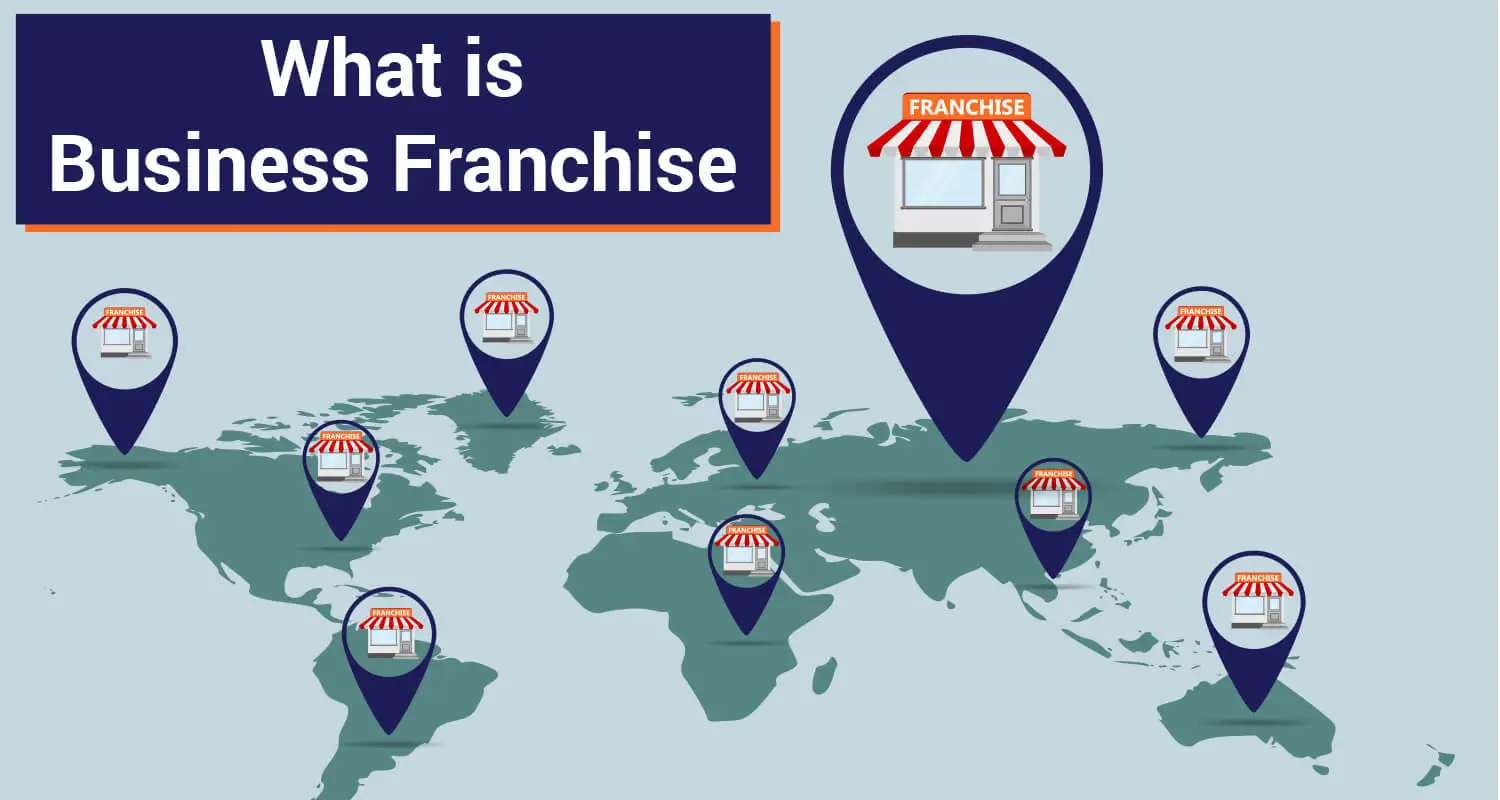Business franchise - Meaning, Benefits & Types

The growing economy has paved the way for many to set up and build their own businesses. Small-scale businesses are gaining momentum and contributing a significant share in the economy. Such effective business operations are a product of strategic planning. While starting your own business is one path, aligning with an established company can also provide significant advantages. If you're in business development and contemplating collaborations with other brands, understanding the concept and benefits of a franchise is pivotal. This article provides insights into the meaning of a franchise, franchise business types, franchise business benefits, the process of acquisition and becoming a franchisee, and addresses common queries about franchises.
What is meant by franchise business?
At its core, a franchise is a business that operates under an established brand name. It's like partnering with a successful restaurant owner and adopting their proven business model. Think of well-known food chains like McDonald's, KFC, or Domino's. When you buy a franchise, you're buying into their brand and business system. Franchises are a commonly adopted model in many industries, like the hotel or apparel industry. Two key terms in this business setup are:
- Franchisor: One who develops the brand and business system, granting investors a license to open new locations under the brand's name and use its intellectual property.
- Franchisee: One who buys the rights to use the franchisor's name and business system to run a business. The franchisee usually pays the franchisor a percentage of revenue, known as a royalty.
Types of Franchise:
Product Distribution Franchise:
In a product distribution franchise, the franchisor allows the franchisee to sell or distribute their products in a defined area. This type of franchise is common in beverages, consumer goods, auto parts, and home appliances. The franchisee gains from using the franchisor's brand and supply chain, while the franchisor grows its market presence through the franchisee's distribution channels.
Manufacturing Franchise Opportunity:This franchise model is prominent in the food and beverage sector, enabling franchisors to expand their business and distribute goods. Franchisors grant licenses to franchisees to operate under their brand name, allowing them to produce and distribute goods. This is a widely used type of franchise.
Business Franchise Opportunity:
Independent businesses often adopt this type of franchise, which lets business owners buy and distribute a specific company's products. The franchising company is responsible for providing accounts or clients to these businesses; in return, they receive predetermined compensation. An example of this is acquiring distribution rights for vending machine routes.
Business Format Franchise:
In a business format franchise, the franchisor supplies products or services, an entire business system, and an operational plan. This includes directions for marketing, training, technology, and ongoing support. The franchisee gains from a tested business model, brand recognition, and continuous support, allowing them to mirror the franchisor’s business success.
Co-branding Franchise:
A co-branding franchise combines two or more well-known brands in one franchise unit. Franchisees can offer complementary products or services at one location, attracting more customers and boosting revenue. For instance, this could mean convenience stores merging with fast-food chains or automotive service centers merging with retail outlets.
The franchising path of business requires a different set of skills and core competencies altogether. However, when you decide to step into the business franchise, you must take care of two aspects- the terms and conditions of the franchise agreement and ways to finance franchise. So, is a franchise financed any differently from the regular businesses?
Sapna aapka. Business Loan Humara.
Apply NowFranchise Finance:
Franchise financing is when a lender helps fund a franchisee's journey to owning a franchise. Even if franchisees meet the financial requirements set by the franchisor, funding the entire project themselves can be challenging. A loan from a lender can cover startup costs, which the franchisee will repay with interest. This financing can come from the franchisor or, more commonly, a bank or financial institution in the form of a business loan. Without this option, franchising would not be as accessible today. Starting a franchise can be expensive. While some franchises require minimal investments, costs can quickly add up. Key expenses include:
- Initial Franchise Fee: Depending on the brand, this can range from hundreds to millions.
- Equipment: Costly machinery or kitchen equipment may be needed.
- Premises: Rent and fit-out costs for the location.
- Living Expenses: It may take months to profit, requiring significant capital reserves to cover living costs.
For instance, both Google and McDonald's India websites state that setting up a McDonald's profitable franchise in india can range from Rs.10 crores to Rs.15 crores.
Benefits of a franchise:
For franchisors:It's a profitable, streamlined business expansion method without heavy investment or overseeing numerous sites. As a franchisor, you can capitalize on your brand's established reputation and customer base while earning revenue from franchise fees and royalties through franchising. This model also opens doors to new markets and regions, providing valuable insights and input from local operators. Additionally, franchising fosters a network of dedicated franchisees who align with the franchisor's vision and values.
For franchisee:Franchising offers entrepreneurs a compelling opportunity to kickstart or grow their business using a tried-and-tested model. It leverages the brand recognition, marketing, and customer loyalty of the franchisor and thus minimizes the risks of starting from scratch. Franchisees benefit from the franchisor's expertise, training, systems, and support, enhancing operational efficiency. Additionally, franchising allows for some autonomy in business operations while being part of a broader network and community.
Drawbacks of a franchise:
For Franchisor:
Franchising does have some drawbacks for the franchisor, including reduced control over business operations and standards. The franchisor must ensure franchisees adhere to the agreement and uphold brand quality and service. This involves costly training, support, and monitoring. Legal and financial risks may also arise if franchisees breach contracts or laws. Rapid franchise growth can dilute the brand if not managed carefully. Balancing quality control with growth is of utmost importance in the success of franchise business types.
For a franchisee:Franchisees must pay high fees and royalties to the franchisor while having limited control and creativity in business decisions. Following the franchisor's rules can restrict their ability to adapt to local market conditions and customer preferences. Franchisees also need to share profits and information with the franchisor and compete with other franchisees in the same area or industry. Additionally, a franchisee may be affected by the franchisor's reputation or performance if it is inconsistent or unsatisfactory.
How is franchising right for me?
When considering a business franchise in India, ensure you're comfortable following established systems as a franchisee. Being overly entrepreneurial might not suit this model, and that's okay. Franchising is ideal for those who prefer executing proven systems over creating new ones.
If you plan to become a franchisor, understand you're entering a new business realm. Franchising demands distinct competencies and focus compared to your regular business. Seek seasoned advice before taking this step.
Franchising isn't a universal solution for business growth. Evaluate costs, benefits, and alignment of goals carefully. Research the franchisor and opportunity thoroughly and consult legal and financial experts before finalizing your choice. Assess your skills, resources, and readiness for a lasting partnership with the franchisor.
Conclusion:
Buying into a franchise is a solid path into entrepreneurship because much of the groundwork is done, and you benefit from a recognized, successful brand. There's a wide range of franchise options available, including fitness-focused ventures like a yoga studio. You can start your own venture and earn well by paying a fee and covering start-up expenses. However, it's important to know that success isn't automatic, and running a franchise takes significant effort to turn a profit. So do your homework thoroughly and select the one most suitable for your growth.
FAQs:
Q1. How to select a franchisor?Ans. When choosing a franchise, consider the support and product evolution managed by the franchisor to meet changing consumer expectations. Common services include a recognized brand name, site selection help, training for you and your team, research and development, headquarters and field support, and marketing. Look for a franchisor that consistently upholds system standards. This is important because it protects franchisees from any adverse actions by others in the network.
Q2. How does the franchisor earn money?Ans. In a franchise agreement, the franchisor makes money through three primary payments.
- The initial fee to buy the rights or trademark
- Charges for training, equipment, or business advice
- Ongoing royalties or a percentage of the sales.
Ans. Yes, a franchisee can be terminated by the franchisor. If a franchisee violates rules such as health and safety guidelines, the franchisor has the authority to close the location immediately.
Q4. What is the difference between a joint venture and a franchise?Ans. A franchise involves an established brand granting another brand the right to use its business system and reputation for a fee and ongoing payments. On the other hand, a joint venture is when two businesses collaborate to achieve mutual profit, often by introducing a new product or service. Both operate on different business models.
Sapna aapka. Business Loan Humara.
Apply NowDisclaimer: The information contained in this post is for general information purposes only. IIFL Finance Limited (including its associates and affiliates) ("the Company") assumes no liability or responsibility for any errors or omissions in the contents of this post and under no circumstances shall the Company be liable for any damage, loss, injury or disappointment etc. suffered by any reader. All information in this post is provided "as is", with no guarantee of completeness, accuracy, timeliness or of the results etc. obtained from the use of this information, and without warranty of any kind, express or implied, including, but not limited to warranties of performance, merchantability and fitness for a particular purpose. Given the changing nature of laws, rules and regulations, there may be delays, omissions or inaccuracies in the information contained in this post. The information on this post is provided with the understanding that the Company is not herein engaged in rendering legal, accounting, tax, or other professional advice and services. As such, it should not be used as a substitute for consultation with professional accounting, tax, legal or other competent advisers. This post may contain views and opinions which are those of the authors and do not necessarily reflect the official policy or position of any other agency or organization. This post may also contain links to external websites that are not provided or maintained by or in any way affiliated with the Company and the Company does not guarantee the accuracy, relevance, timeliness, or completeness of any information on these external websites. Any/ all (Gold/ Personal/ Business) loan product specifications and information that maybe stated in this post are subject to change from time to time, readers are advised to reach out to the Company for current specifications of the said (Gold/ Personal/ Business) loan.



